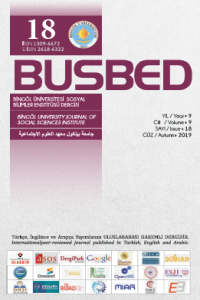SİVİL TOPLUM KURULUŞLARINDA LİDERLİK
LEADERSHIP IN CIVIL SOCIETY ORGANIZATIONS
Author(s): Erhan KılınçSubject(s): Civil Society, Recent History (1900 till today), Management and complex organizations
Published by: Bingöl Üniversitesi Sosyal Bilimler Enstitüsü
Keywords: Civil society organizations; leadership;
Summary/Abstract: Today, it is gaining more acceptance to tend to the opinion of "no matter in what environment, some leadership styles are always good and effective" instead of opinion, "the opinion in different types of organizations and may change the management and leadership styles in different conditions". Because the possibilities and environment of today's organizations, employees and managers / leaders have changed considerably. Therefore, a leader's chance of success is more likely to be balanced by changing environmental conditions than by practicing all of the principles of leadership. In recent years, non-governmental organizations (NGOs), which are seen as a stakeholder of the private and public sector and as a third sector, carry out many social, cultural and economic activities in the national and global area and assume responsibilities. The number of civil society organizations, capital amounts and their importance increase day by day and their areas of influence are expanding. This situation has raised the issues of how to manage them better and which management and leadership model would be more appropriate for this organizational structure. According to other types of organizations, there is a need for a new management approach and practices in order to manage these organizations with various constraints and differences more effectively and efficiently. In this regard, it is important to manage the NGOs and to investigate the leadership models that can be applied to them. Certainly good management is only possible with a good leader. In today's world where rapid changes and developments are experienced and the consciousness and expectations of the society are increasing, it is possible for enterprises to keep up with this order with a visionary, transformational, human oriented and interactive leadership approach. In this study, it is tried to explain the type and characteristics of leadership needed for effective management of NGOs in the light of changes and developments in NGOs in the 21st century.
Journal: Bingöl Üniversitesi Sosyal Bilimler Enstitüsü Dergisi (BUSBED)
- Issue Year: 9/2019
- Issue No: 18
- Page Range: 1089-1110
- Page Count: 22
- Language: Turkish

